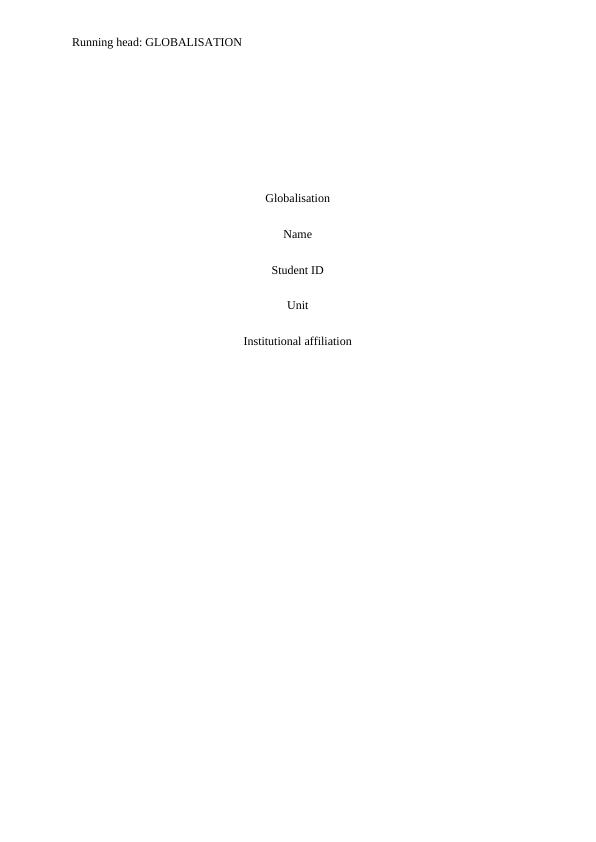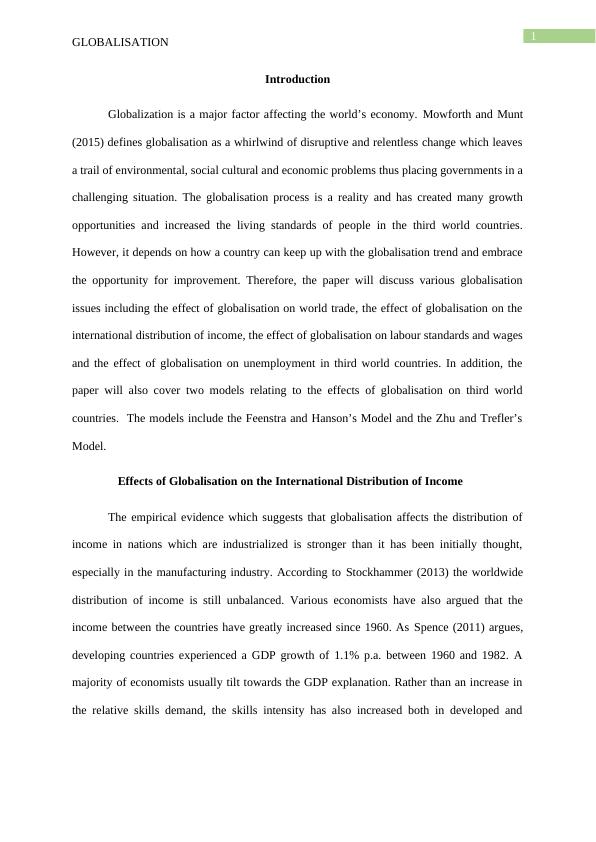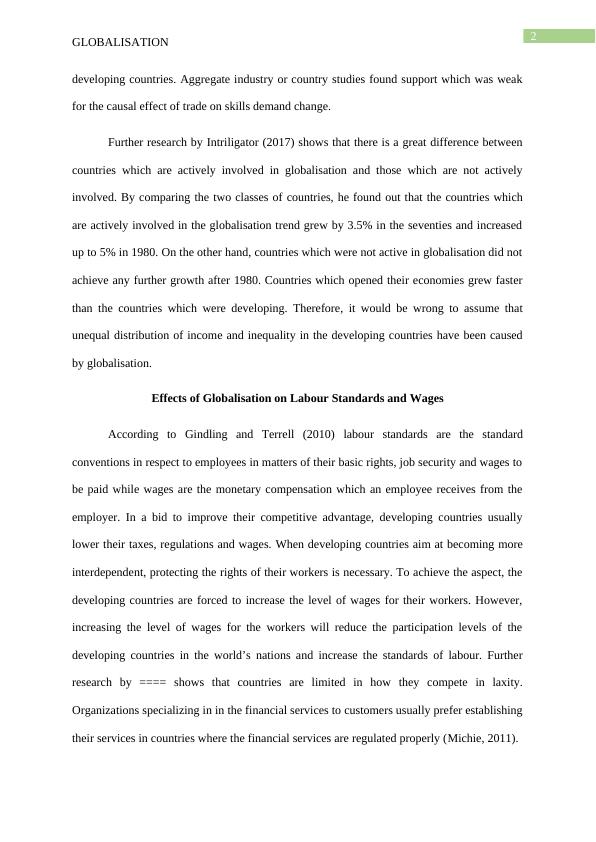Effects of Globalisation on World Trade, Income Distribution, Labour Standards, and Unemployment in Third World Countries
Added on 2023-04-24
10 Pages2522 Words306 Views
End of preview
Want to access all the pages? Upload your documents or become a member.
Inequality and Its Impact
|6
|1169
|1
Macroeconomics
|10
|2336
|351
Effects of globalization inequalities in various countries in the 21st-century world Literature Review 2022
|9
|2427
|14
Impact of International Trade on Income Inequality in the United States
|8
|1376
|98
Economic Performance of Australia: GDP, Unemployment, Inflation and Trade
|12
|2399
|330
Positive Influence of Globalization Towards the Growth of World Business
|6
|1256
|14



